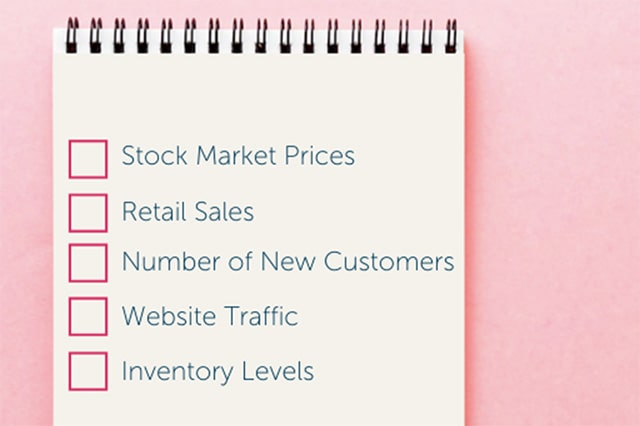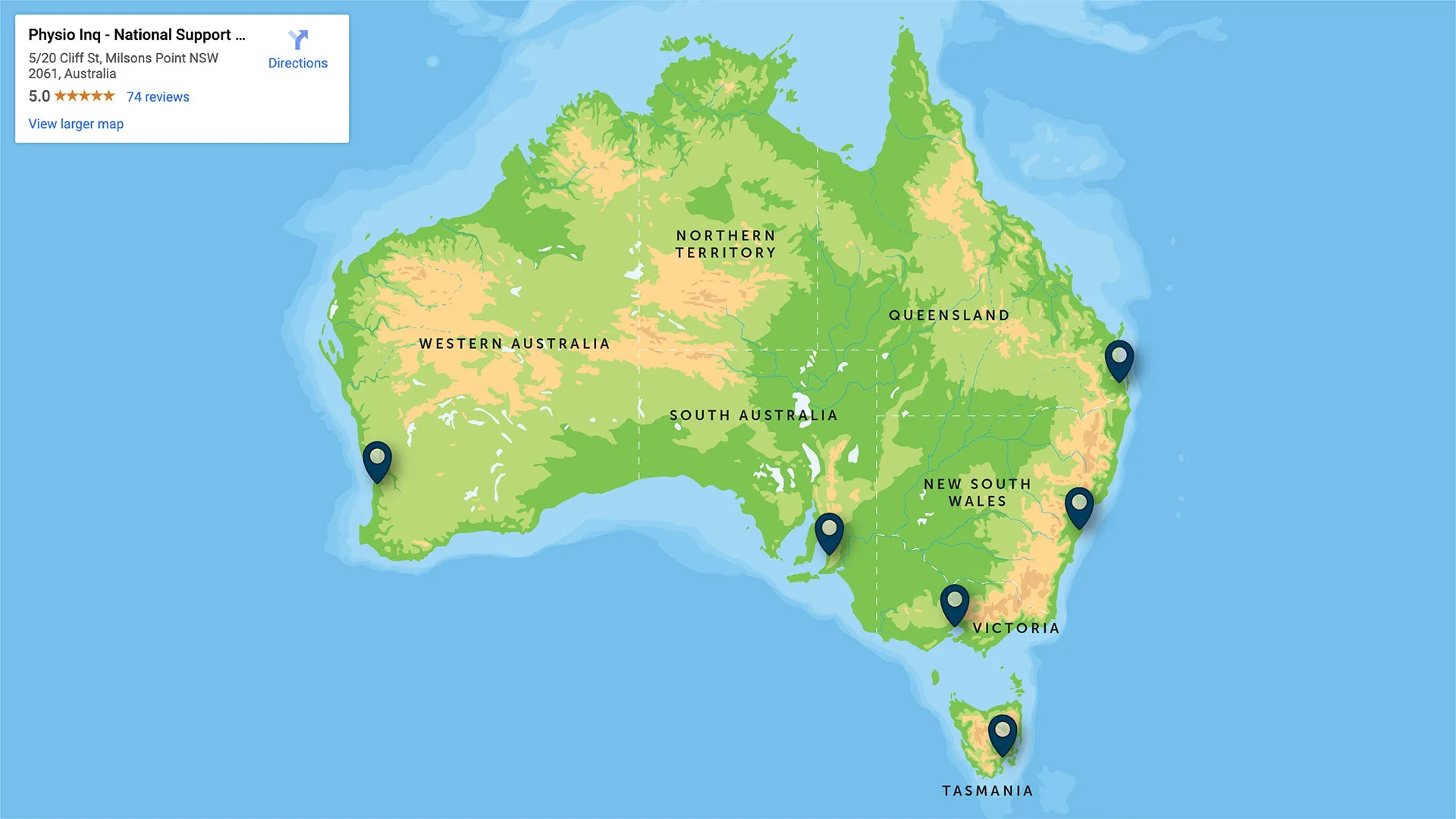Happiness as a Leading Business Indicator
Originally Published Sep 4, 2020
What if happiness was the true key to success in business? What if instead of focusing solely on Net Profits and Growth Analytics, we paid just as much attention to our company culture and encouraging our staff to find happiness on both a personal and professional level?
Well, at Physio Inq, we believe that happiness is the most important Leading Business Indicator. In fact, happiness can boost business growth, improve employee retention, increase customer engagement and more!
Here’s why….
What Is A Leading Business Indicator?
Leading Business Indicators, also known as Leading Economic Indicators or Leading KPIs are measurable factors that indicate a company’s growth, position in the market and profitability.
Leading Business Indicators are used to predict the trajectory of a business strategy. Although they are not always completely accurate -- in the same way that most predictions won’t be -- Leading Business Indicators are factors that determine, with some level of clarity, whether a business is growing or lagging behind.
Some examples of leading business indicators include:

As these numbers fluctuate, it can typically tell business owners the trajectory they’re currently on. For example, if you own a Physiotherapy Clinic which has a lot of new patients, you can estimate that things are going pretty well. Alternatively, you could look at the number of repeat customers as an indicator of customer service levels. For more information on how to re-engage customers for longer term business growth, click here.
However, many business owners and entrepreneurs are starting to argue that the strongest Leading Business Indicator is actually happiness. That’s right -- happiness both within yourself and among your employees, clients, and stakeholders can actually be indicative that things are at their peak.
Why do we value happiness so highly?
Let’s think about Leading Business Indicators on a larger scale. Countries use GDP as their most important leading business factor. But, when all is said and done, what’s the point if no one in your country is satisfied?
It’s the same in a small business. If profits are skyrocketing and you have a lot of new clients, it might seem like you’re killing it on paper. But if no one at your company is fulfilled or happy, including yourself, what’s it all for?
Happy people are more motivated, inspired, and productive than those that are simply going through the motions or worse, completely miserable in their jobs.
Think about happiness in your own life. Isn’t it true that when you’re happy, in a good mood, and full of energy, you treat both yourself and those around you a whole lot better? For example, you probably eat healthier, find time to exercise, have patience with your kids, and engage in real conversations with your spouse.

When you’re chronically unhappy, you’re far more likely to take the nihilistic approach of “nothing matters anyway.” You’re likely to eat crisps for dinner and yell at your dog. Not to mention how you probably interact with colleagues and customers.
Happiness is cyclical and it bleeds into every aspect of our lives. Happy people take better care of themselves and others, which in turn makes them feel even better, repeating the process again and again.
Economists tend to ignore happiness as a Leading Business Indicator, however, because it can be difficult to measure. After all, happiness is a cultural phenomenon and what makes one person happy won’t always work for another.
Some are outwardly and obviously happy all the time, others are happiest when things feel steady and uneventful, and still, others are happy when they’re busy. However, you choose to measure it, keeping your finger on the happiness pulse of your business is so important.
So, if you’ve been spending all your time worrying about the sales projections and website stats without spending any time thinking about your own happiness or the happiness of those in your business, it’s time to reassess.
How to Boost Happiness in Your Business
There are many ways to boost happiness in your business, here are a few:
Make it about your employees
At Physio Inq our key value is N=1. N=1 is a philosophy that means our employees are at the very core of our business. It is an appreciation that everything we have achieved as a business; we have achieved because of the skills of our workforce. Therefore, we think it is essential to ensure that their personal passions are recognised and encouraged.
Sometimes, executing the N=1 value may feel difficult. As business owners, managers and staff, we sometimes get consumed with dollar signs and growth. Taking a minute each day to reflect on how your business got to that place puts everything in perspective.
Schedule regular weekly and monthly meetings
You may already do this, but catching up with your employees on a weekly, monthly and more (if needed) basis is a great way to promote open and honest communication between you and your employees. What’s important to remember is that these meetings shouldn’t always be centred on their business tasks, performance and statistics. Rather, once a week or so, open it up to include their personal growth; their passions, what areas are they needing more support in, are there areas they want to upskill in? This will show your staff that you are there, just as much as they are there for you and your business!
Team Bonding!
Team bonding sessions are the sure-fire way to involve your staff and boost morale. Take an afternoon off and treat your team to arvo drinks at your local pub, organising a bowling night or a trivia evening. The options are endless! Just remember, inclusivity is key! If you are organising an event, make sure every person in your organisation can participate. The last thing you’d want is one or two of your team members sitting out because they weren’t considered.

Get out of the office
Flexible work environments are slowly becoming the new normal, and in the current environment, there is no better time to try them. Flexible work environments allow your staff to take control of the way they work, optimising their environment to best suit their work habits. Maybe you have staff that are night owls or earlier risers. The options are endless!
Launch an Individual Development Plan
An Individual Development Plan (IDP) is a tool to assist employees map out their career and personal development. The main purpose of an IDP is to help employees their short- and long-term goals. IDP’s help develop a better understanding of your team’s professional and personal goals, their strengths and weaknesses and the areas they want to improve on.
By launching an IDP strategy, this will show your employees that you are serious about investing in them as individuals from both a career and a person standpoint.
At the end of the day, making sure the people who look after your business are being looked after is one of the best ways to ensure long term business success. It’s important to remember that your staff often make your business their number one priority, they deal with your loyal customers and offer exceptional customer service to them. It simply makes sense that you look after them in return.
Thinking of starting your own business? Physio Inq can help! Physio Inq offers amazing partnership opportunities to join our team and open your very own Physiotherapy clinic! For more information, fill out the form below or reach out to our team at (03) 9001 6612 or email [email protected]
Are you interested in owning a health care business, or do you require help running yours?
Disclaimer
The information provided on this blog is intended for educational and informational purposes only. It is not intended to be a substitute for professional advice or treatment. Always seek the advice of a qualified professional with any questions you may have regarding a medical condition. Never disregard professional medical advice or delay in seeking it because of something you have read on this blog.

